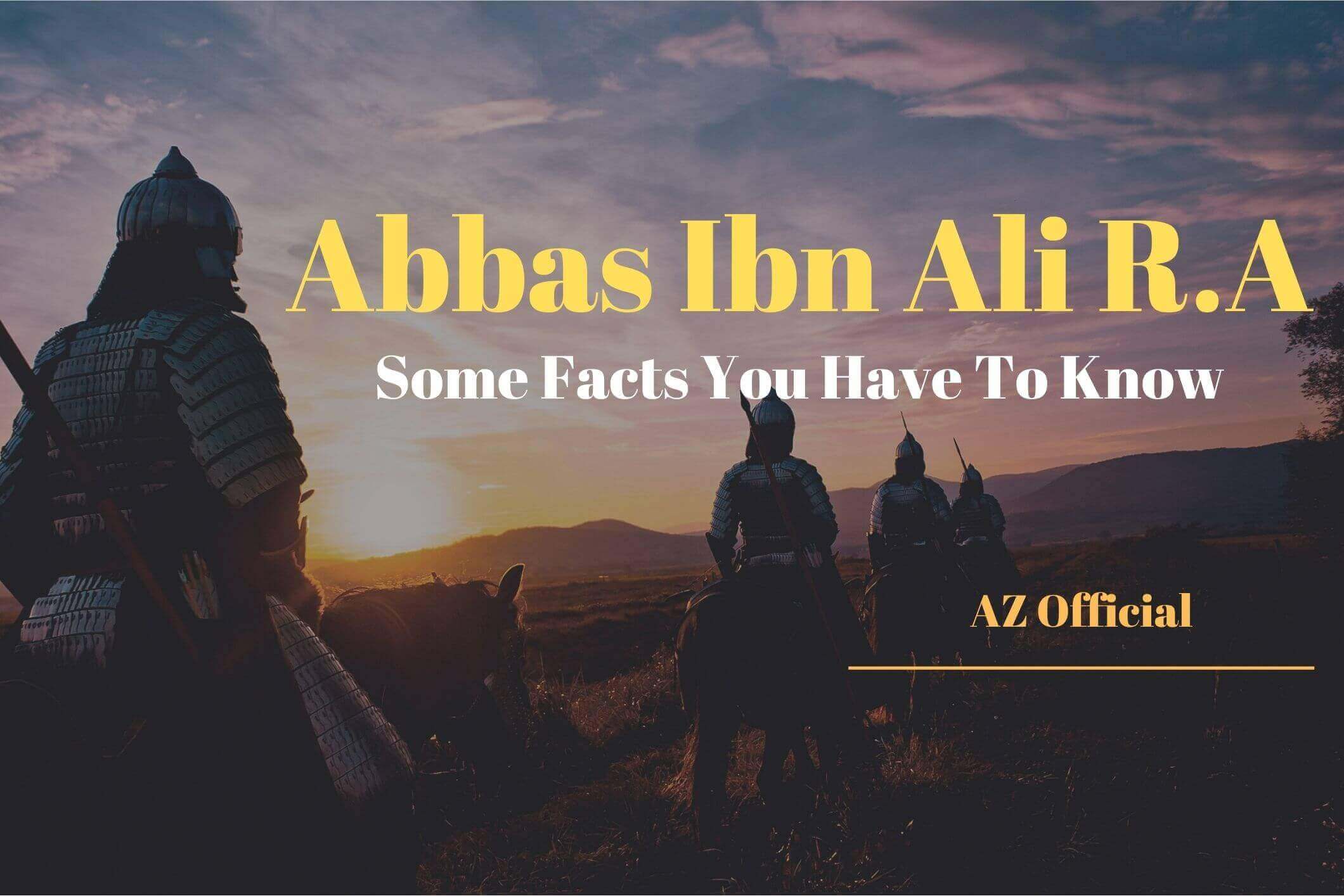Abbas Ibn Ali (R.A) Some Facts You Have To Know

Ali Ibn Abu Talib and Abbas Ibn Ali were both
born to Fatima binte Hizam,
who was better known as Ummul Baneen?
Muslims respect Abbas because of how much he cared about Hussein Ibn Ali,
how much he respected the Ahlulbait,
and how important he was in the Battle of Karbala.
Abbas had two kids when he married Lubaba binte Obaidullah
Ibn Abbas Ibn Abdul Muttalib.
Ibn Abbas was blessed with three sons:
Fazal (the oldest),
Qasim (the second), and Obaidullah (the third).
The Battle of Karbala claimed the lives of two of them.
Following Abbas Ibn Ali’s family genealogy, Obaidullah Ibn Abbas succeeded him.
After that, Obaidullah had a total of five children.
There were five grandchild names of Abbas Ibn Ali: Abdullah, Abbas,
Hamzah, and Abraham Ibn Obaidullah. Fazal Ibn Obaidullah was Abbas’
grandson’s middle name. Abbas ibn Ali (R.A)
The prophet Mohammad (PBUH) is said
what would happen to his grandson Imam Hussain Ibn Ali at Karbala?
This upset the Prophet Muhammad, Fatima Zahra, and Ali,
and Ali wished for a son to assist Hossein (PBUH) Ibn Ali at Karbala.
He requested that his brother Aqeel Ibn Abu Talib look for a woman of valiant ancestry.
Fatima Kelabiya, also known as Ummal Baneen,
was a member of the illustrious lineage of Hezam Ibn Khalid Ibn Rabi’e Ibn Amer Kalbi,
as mentioned by Aqeel. During the reign of Fatima Zahra,
Ali Ibn Abu Talib did not wed Ummal Baneen or any other woman.
Abbas Ibn Ali’s Death
Muslims believe he called Hossein (P.B.U.H.) brother for the first time
in his life at this point in time,
according to Islamic historians. the 10th of Muharram was murdered
on the banks of the Euphrates river.
On the 7th night of Muharram,
his death is lamented.
During the first ten days of Muharram,
the first month of the Islamic calendar,
Shia Muslims commemorate the martyrdom of all Muslims
affiliated with Hossein (P.B.U.H.).
Abbas is also said to have murdered 2415 warriors
on Ashura according to the records of the Muslim holy month.
